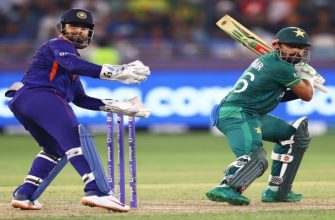Becoming a cricket umpire in India is not less than pursuing any other professional career. It requires dedication, hard work, and in-depth knowledge of the game rules. If you have a passion for cricket and understand its intricacies, being an umpire can turn your love into a rewarding vocation. This post guides you on how to become a cricket umpire in India.
- An Overview of Cricket Umpiring in India
- Eligibility Criteria to Become an Umpire
- The Steps To Becoming An Umpire In India
- Stage One: Training Course and Entrance Examination
- Stage Two: Level One Umpire Certification
- Stage Three: Level Two Umpire Certification
- Stage Four: Become a BCCI Panel Umpire
- Honing Umpiring Skills
- Conclusion
An Overview of Cricket Umpiring in India
In Indian cricket, umpires play a crucial role as they are responsible for making important decisions during matches. They need to ensure fair gameplay by interpreting and implementing cricket laws and regulations under varying conditions. Thus, umpires need comprehensive knowledge about changes and updates in aspects such as bowling techniques, use of technology in reviewing decisions, etc.
Eligibility Criteria to Become an Umpire
To be eligible to apply for the position of a state-level umpire in India, one needs to fulfill certain criteria. Here’s what the Board of Control for Cricket in India (BCCI) stipulates:
- A minimum age requirement of 18 years,
- You should have played at least three years of cricket at district or state level,
- You must pass the written exam conducted by BCCI.
The Steps To Becoming An Umpire In India
Becoming an umpire involves going through several stages with BCCI:
Stage One: Training Course and Entrance Examination
You first enroll in an associated training course from recognized institutions like the Mumbai Cricket Association, Uttar Pradesh Cricket Association, etc. After completing the course, you appear for an entrance exam conducted by BCCI. This requires comprehensive cricketing knowledge and understanding of laws.
Stage Two: Level One Umpire Certification
If you pass, a second written test is held– The Level 1 Umpiring Examination. On successful completion, you get awarded the Level One certification that allows officiating in matches at district levels and below.
Stage Three: Level Two Umpire Certification
After two years of active umpiring post Level 1 certification, you can sit for the Level 2 Exam. Clearing this enables one to officiate state-level matches.
Stage Four: Become a BCCI Panel Umpire
In two years subsequent to receiving your second level certification and after considerable experience on-field, you become eligible to sit for BCCI’s panel umpire examination. Acing it allows joining national tournaments like the IPL as an umpire.
Honing Umpiring Skills
Being an effective cricket umpire requires more than just knowing rules; it includes maintaining fairness, impartiality, managing players, crowds and coping with pressure. To cultivate these necessary skills:
- Gain as much practical exposure as possible by observing senior umpires during games,
- Join workshops and seminars organized by cricket associations,bCCI or ICCF to improve understanding,
- Maintain physical fitness since on-field duties require stamina,
- Keep updated with changes in cricket laws and regulations through available resources from MCC and ICC’s websites.
Conclusion
Becoming a cricket umpire in India demands hard work, patience, and a thorough understanding of the game. But with determination and sufficient preparation, this is a goal that can be achieved. And remember—cricket umpiring not only brings honor to an individual; it also plays an instrumental role in ensuring that the spirit of cricket is upheld.









